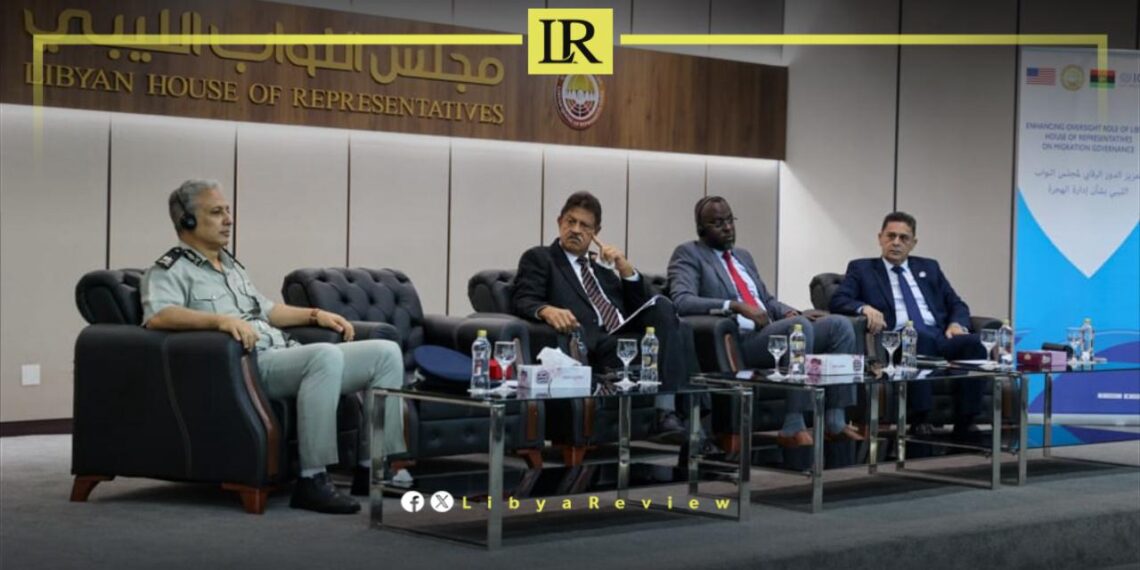The Chairman of the Foreign Affairs and International Cooperation Committee of the Libyan Parliament, Yousef Al-Aqouri, reiterated the House of Representatives’ stance against settling migrants in Libya.
Al-Aqouri emphasised the importance of enhancing the House’s capabilities to address this issue from humanitarian, financial, and legal perspectives.
He also stressed the need for comprehensive governance of the migration file, which relies on coordination among all relevant parties, and the importance of utilising the expertise of the International Organization for Migration (IOM) to build national capacities.
On Wednesday, the Foreign Affairs and International Cooperation Committee of the House of Representatives held a workshop. This event, focused on the oversight role of the House in migration management, was organised in cooperation with the IOM and included participation from executive authorities, parliamentary oversight bodies, and various departments of the House of Representatives.
Researchers, activists, and relevant entities from several Libyan cities also joined the workshop via direct video communication.
Ramadan Shambash, Chairman of the Legislative and Constitutional Committee of the House of Representatives, delivered a speech highlighting the House’s role in enhancing the legislative framework for migration, particularly reviewing previous laws. He underscored the necessity for national laws to align with treaties ratified by Libya.
The workshop aimed to explore the House’s oversight role in migration management, the key challenges faced, the role of executive authorities, and ways to enhance migration governance. It also sought to develop effective programs by leveraging international expertise in this field.
The event featured several presentations aimed at introducing migration topics, the parliamentary role, and the current humanitarian conditions related to irregular migration. These presentations included explanations of other countries’ experiences to learn from them, as well as the supportive role of the IOM in enhancing migration governance in Libya.


